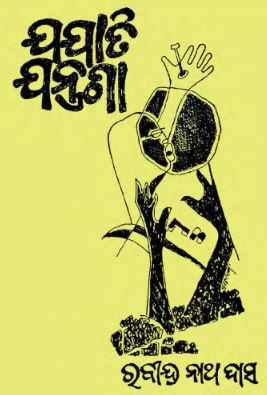Published in 1990, “Jajati Jantrana,” a remarkable work by Odia playwright Rabindra Nath Das, serves as a poignant reflection of the socio-cultural issues prevalent in Odisha and Indian society at large. Set against the backdrop of complex human relationships and societal dynamics, the drama stands out for its incisive critique of the caste system, the struggle for identity, and the quest for social justice.
The title “Jajati Jantrana” translates to “The Machinery of Caste,” a theme that is woven intricately throughout the narrative. The play addresses the oppressive nature of the caste system and its repercussions on individual lives and society. Through well-developed characters, Das illustrates the everyday struggles faced by those from marginalized communities, emphasizing the deep-rooted biases and injustices that continue to plague society.
The protagonist, a young man from a lower caste, serves as a powerful representation of resilience in the face of systemic oppression. His journey exposes the audience to the harsh realities of discrimination and the psychological toll it takes on individuals and families. The character’s relentless pursuit of dignity and acceptance is a central theme that resonates with many, making it an emotionally charged experience for the audience.
Das’s use of language enhances the play’s impact. His dialogues are laced with local vernacular, which not only grounds the characters in their cultural milieu but also adds authenticity to their struggles. The interspersing of folk idioms and contemporary expressions elevates the narrative, making it both relatable and deeply evocative.
The play also employs a multi-dimensional approach to storytelling. While it focuses on the protagonist’s plight, it simultaneously sheds light on the complicity of various social strata in perpetuating the caste system. This interconnectivity reveals how societal norms and values shape individual beliefs and behaviors, encouraging the audience to reflect on their own roles within the broader social structure.
Another significant aspect of “Jajati Jantrana” is its role as a vehicle for social critique. Das does not shy away from highlighting the need for reform and social change. The drama becomes a call to action, urging viewers to question and challenge the status quo. The emotional depth and intensity of the narrative serve as a powerful reminder that societal change requires collective effort and individual courage.
Visually, the production elements of “Jajati Jantrana” play a crucial role in enhancing the storytelling. The set design and costumes vividly depict the cultural landscape of Odisha, creating an immersive environment that complements the themes of the play. The use of traditional music and dance further adds to the richness of the performance, creating a dynamic interplay between dialogue and choreography that captivates the audience.
In conclusion, Rabindra Nath Das’s “Jajati Jantrana” is more than just a drama; it is a thought-provoking exploration of social issues that remain relevant today. Through his masterful storytelling, Das sheds light on the struggles of the marginalized, while also urging society as a whole to introspect and work towards a more equitable future. Its combination of emotional resonance, cultural authenticity, and social critique makes “Jajati Jantrana” a must-read for anyone interested in the evolution of Odia literature and the ongoing fight against caste-based discrimination.
Books Info
| Books name | Jajati Jantrana |
| Editor | Rabindra Nath Das |
| No Of pages | 59 |
| Publisher | Jigisha Publications |
| Publication | 1990 |
| Printed At | Sri Radhanatha Co Press |
| Distributor | NA |

